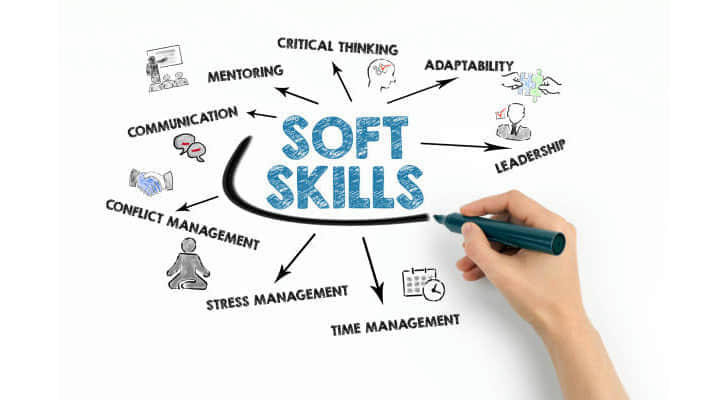Having More Certificates Doesn’t Mean You’re More Capable: Real Value Comes From More Than Paper Credentials
In today’s achievement-driven environment, certificates have become a popular way to signal competence. Whether it's professional licenses, language test results, or technical training certificates, there’s growing pressure to collect qualifications as proof of ability. But does having more certificates truly reflect someone’s real skills? What actually defines a person’s value—credentials on paper, or demonstrated ability in real-world situations?

The Logic Behind the Certificate Craze
Certificates serve a practical function. For organizations, they offer a standardized way to evaluate applicants. For individuals, they show evidence of effort and a level of knowledge in a given area. In regulated fields like healthcare, construction, and law, specific certifications are not optional—they’re required by law or industry standard to ensure safety and compliance.
Still, not all certificates carry the same weight. Some reflect rigorous study and deep expertise, while others may only require passing a short-term course or test. More importantly, many of the most critical skills for success in the workplace—like problem-solving, collaboration, or adaptability—aren’t easily certified.
Case Studies That Tell a Different Story
Case 1: IT Professional with Multiple Certifications Struggles in a Leadership Role
At a large technology company, a candidate for a project manager position presented an impressive list of technical certifications—PMP, Cisco, Oracle, and Python credentials among them. However, during the probation period, this individual struggled to manage cross-team communication, failed to keep projects on track, and couldn’t motivate the team. Despite technical expertise, they lacked core leadership and coordination abilities.
Another applicant, with fewer certifications but a solid track record of delivering real-world projects, eventually proved a better fit. This example illustrates that while certificates can show technical know-how, they don’t guarantee the broader set of skills needed to perform effectively in complex roles.
Case 2: Academic Credentials vs. Practical Skills in Engineering
A manufacturing company brought on two junior engineers. One held a master's degree from a top-tier research university and several engineering-related certificates. The other had a diploma from a technical school and only one national credential. After six months on the job, the second engineer stood out thanks to strong hands-on skills, quick problem-solving, and a better grasp of real-time equipment issues.
The lesson here is clear: classroom performance and test results do not always translate into field performance. Real experience can often outweigh academic prestige.
Insights from Independent Research
A study published in Harvard Business Review identified the top five attributes employers value most when hiring for managerial roles: problem-solving ability, communication skills, teamwork, stress management, and execution. Notably, none of these core traits are easily proven by a certificate.
Research from global HR consultancy Mercer found that companies are increasingly moving toward “skills-based hiring” rather than relying primarily on degrees or certificates. Their Future of Work report noted that between 2022 and 2024, many North American and European organizations placed greater value on hands-on experience and real accomplishments than on formal credentials alone.
In other words, certificates are useful—but they are no longer the only standard of value.
A Balanced View: Certificates Still Have Their Place
Criticism of certificate-heavy hiring should not be misunderstood as a rejection of certification altogether. In many industries, credentials serve as an essential baseline for safety, compliance, and accountability. A pilot cannot fly a plane without a license. A pharmacist cannot dispense medication without state approval. In these contexts, certificates represent more than knowledge—they’re legal requirements built to protect the public.
Technical fields also benefit from credible certifications. In cloud computing, for example, holding an AWS or Google Cloud certificate shows that someone has dedicated time and effort to mastering key tools and frameworks. These certificates often serve as a foundation for more advanced, practical skills.
So the issue isn’t with certificates themselves—it’s with overvaluing them at the expense of practical ability.

What Really Determines Professional Value?
1. Practical Experience
On-the-job experience remains one of the most reliable indicators of ability. It reflects how someone applies knowledge to real situations, adapts to change, and solves unpredictable problems.
In customer service, for instance, someone who’s been trained in scripts and certified in service standards may still fail when dealing with an angry or emotional customer. Real effectiveness depends on judgment, empathy, and real-time decision-making—none of which can be taught in a classroom alone.
2. Learning Agility
In fast-changing fields like technology, the ability to learn and adapt is often more valuable than what someone already knows. A certificate earned in 2015 may have little relevance in 2025 if the holder hasn’t kept pace with industry changes.
Professionals who actively seek out knowledge—through reading, industry events, or hands-on exploration—often outperform those who rely solely on credentials, even if those credentials once held high value.
3. Soft Skills and Collaboration
Communication, teamwork, time management, and emotional intelligence are increasingly recognized as essential workplace skills. These are especially important in roles that involve working across departments, managing client relationships, or leading teams.
And yet, few of these skills are tested in certification programs. That makes behavioral interviews, peer reviews, and real-world track records more reliable indicators of ability than paper documentation alone.

Striking a Balance: When Certificates Help—and When They Don’t
Certificates and ability don’t have to be at odds. In fact, the best performers usually combine both. But how much weight a certificate should carry depends on where someone is in their career.
At the entry level, a certificate can signal interest and a baseline of knowledge.
In mid-career, proven results, completed projects, and visible achievements matter more.
For experienced professionals, reputation, leadership, and adaptability define long-term value.
For organizations, that means rethinking evaluation strategies. Standardized credentials are easy to verify, but they don’t reveal how someone behaves in high-pressure environments or what they’re like as part of a team. Hiring processes should include skill-based assessments, real-world scenarios, or trial periods that give a more accurate picture.
Final Thoughts: Ability Is More Than What’s on Paper
Certificates are tools, not trophies. They can support learning, open doors, and build confidence—but they should never be mistaken for complete representations of talent or potential.
As education psychologist Howard Gardner once noted, “It’s not what someone knows that matters most—it’s what they can do with what they know.”
The most successful professionals are those who combine core knowledge with adaptability, curiosity, and real-world competence. In that light, the goal isn’t to collect more certificates, but to build more capacity. Value stems from how effectively skills are applied, not how many lines appear on a résumé.
Ultimately, it’s not the paper that defines a person—but the person who gives meaning to the paper.

